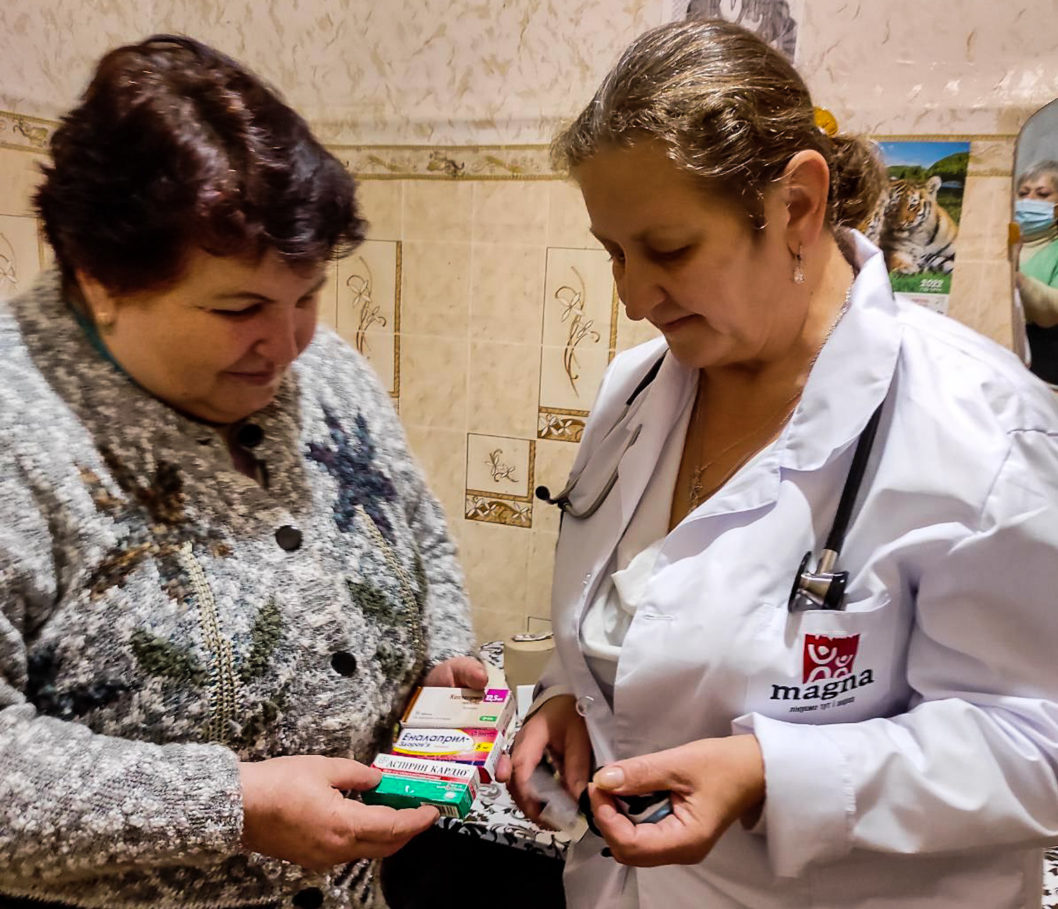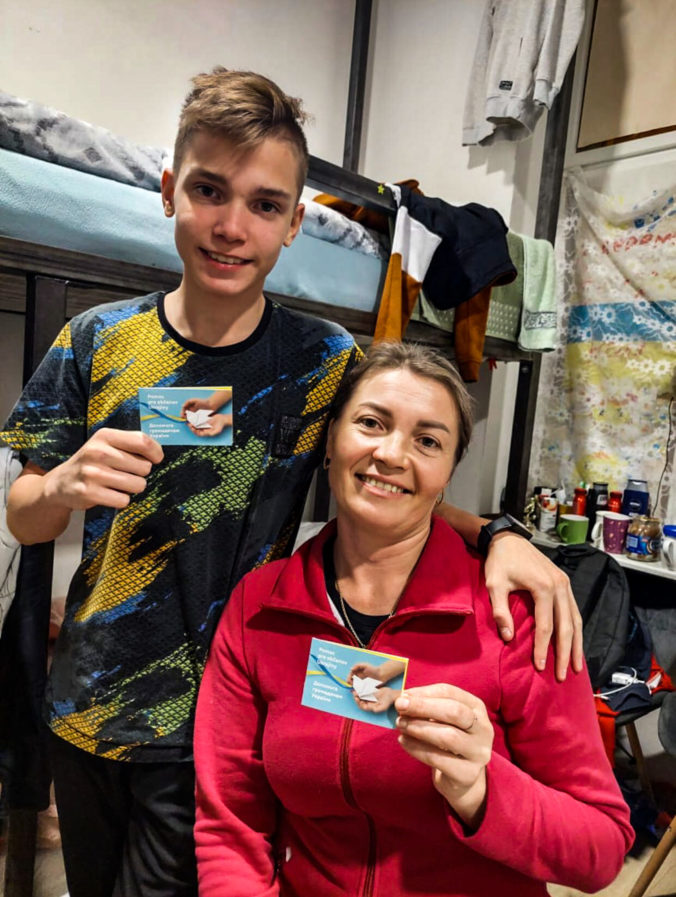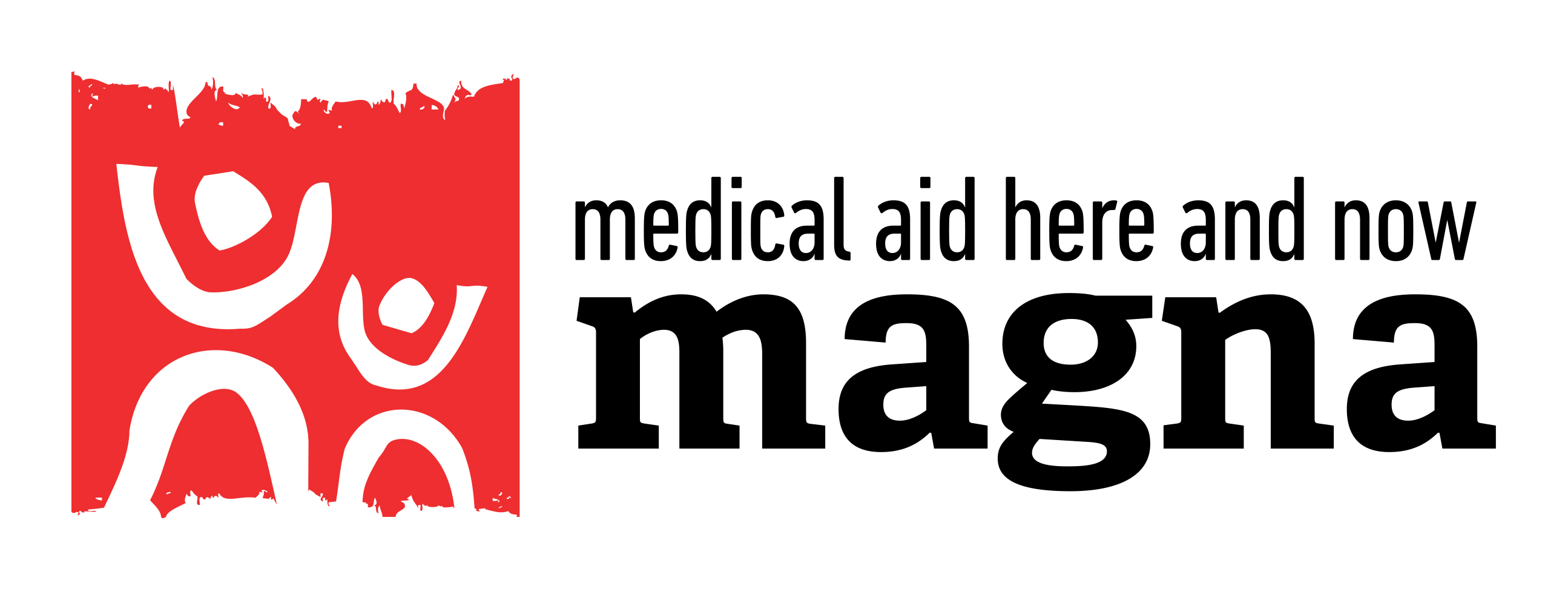Ukraine
Ukraine: in the first 6 months of the war, we provided medical aid to 300 000 people
From March to October, more than 297,000 people benefited from medical assistance provided by MAGNA. More than 175,900 patients were treated, more than 3,200 difficult operations were performed, 15 medical facilities were supported and thousands of psychological consultations were provided thanks to your help.
Since the beginning of the Russian attack on Ukraine in February 2022, the lives of all Ukrainians have been seriously affected by the violence of war, the lack of medicines, medical supplies and food, and the crisis associated with displacement from areas affected by violence. Critical infrastructure has been and is repeatedly hit, damaged or destroyed. The healthcare system in Ukraine is severely disrupted, with approximately 300 healthcare facilities located in areas affected by the fighting. An additional 1,000 medical facilities are located in areas under the control of the Ukrainian government. Many pharmacies are closed and drug stocks are low, leaving people unable to access health care and life-saving drugs. The high concentration of internally displaced persons in the east of the country overloads the existing medical facilities. In addition, hostile attacks also target medical personnel and facilities, which disrupts the provision of impartial and effective health care.
According to the assessment of medical needs, every fifth person (22%) in Ukraine does not have the opportunity to obtain the necessary medicines; while in areas of active conflict and in areas outside the control of the Ukrainian government it is up to one third of the population. Internally displaced persons also face similar problems.
Hundreds of thousands of people live without access to basic necessities such as water, food and electricity. The lack of fuel continues to limit the supply and distribution of medical supplies. Millions of people are on the run and live in 5,600 centers for displaced people in Ukraine. The ongoing fighting largely hinders rescue work and the evacuation of civilians from the most affected places, as well as the provision of life-saving humanitarian aid on and around the frontline. At the end of September, four medical workers who evacuated hundreds of patients and residents of a psychiatric hospital in the village of Strilecha near the border with the Russian Federation were killed in the shelling of Kharkiv. Similar attacks on medical facilities and mobile medical teams have been taking place throughout the conflict.
So far, up to 663 medical facilities and teams have been affected, of which up to 580 facilities were destroyed or damaged by the attacks. Their victims were healthcare workers as well as patients.
Many MAGNA patients in Ukraine have been injured in military attacks targeting civilian residential areas. The mass use of heavy weapons in densely populated areas means that civilians are inevitably, and therefore knowingly, killed and injured. Attacking forces also shot at civilians during evacuation or attacked them when they tried to leave war zones. The elderly were brutally and directly attacked, and their particularly vulnerable position was completely overlooked by the attacking force. Injuries are often extensive and affect people regardless of whether they are male or female, young or old.
Attack on energy infrastructure.
A wave of attacks on Ukraine’s energy infrastructure, which began on October 10, has left millions of people across the country not only without electricity, but also with limited access to clean water, as water pumps depend on electricity. According to government estimates, at least a third of the country’s energy infrastructure was damaged. An estimated 4.6 million people across Ukraine do not have proper access to safe water, while about 1.4 million people in eastern Ukraine currently have no water supply.
Reduced capacity to provide basic health care, along with disruptions to safe drinking water supplies, pose the risk of outbreaks of serious diseases such as cholera. The lack of water is especially critical now in the coming cold season, as it is needed to operate heating systems in most Ukrainian households. Power outages brought trains to a standstill, and in some locations, including Kharkiv, hospitals relied on generators to continue providing services.

MAGNA and its intervention directly in Ukraine
MAGNA projects and their activities respond to the health crisis in the open military conflict in Ukraine. We intervene in acute critical situations, traumas, provide treatment for chronic diseases and take care of women and children as well as the elderly.
In addition to primary health care, we also provide treatment for the injured and other persons in need of health care, we provide life-saving care in the field of sexual and reproductive health, including prenatal care. Last but not least, we provide psychosocial support, counseling and psychologist consultations on a daily basis.
We ensure improved access to quality basic health services for the conflict-affected population, increase the availability of medicines and have also created a system for sending seriously ill patients to secondary and tertiary health care facilities.
MAGNA supports and works directly in medical facilities and hospitals in Kyiv, Chernihiv, Kharkiv, Vinnytsia regions and has also deployed 4 mobile health teams (MHTs) that provide a full package of health services, injury treatment, psychosocial assistance as well as hygiene awareness raising. The aim of the mobile health teams is to ensure the access of remote communities affected by the conflict to basic health care. Static health centers and hospitals serve mainly for the treatment of injuries, accidents and severe cases.
Thanks to the operation of MAGNA in Ukraine, in the first 6 months, more than 580,000 people gained access to health care, and to supplies of medical materials intended for obstetric, surgical and medical procedures, as well as to and kits of supplies intended for the provision of first aid. Supplies, diagnostic and treatment equipment were delivered by MAGNA teams to pre-selected MAGNA medical facilities.
More than 297,000 people have benefited from medical assistance provided by MAGNA. More than 175,900 patients were treated, more than 3,200 difficult operations were performed, 15 medical facilities were supported and thousands of psychological consultations were provided thanks to your help.
Our intervention in Ukraine
175.900
15
6
3.200
The current situation in the country – power outages, destroyed infrastructure in agriculture and a high incidence of non-communicable diseases worsen the already difficult situation of people and the operation of medical facilities.
In the capital Kyiv, which had a population of around 3 million before the war, around 350,000 homes and businesses are without electricity, and 80% of consumers are without water as a result of the attacks, according to local authorities.
Shortages of agricultural workers, destruction of food production infrastructure and limited access to arable land are likely to reduce food production and availability in Ukrainian markets, leading to deepening food insecurity. It is estimated that in the 2022-2023 season, 20-30% of the areas with winter crops will remain unharvested. In addition, almost 15% of agricultural storage capacity is located in areas outside the control of the Ukrainian government. The risk for the remaining storage facilities is their location near transport hubs that become targets of hostile actions.
The main health risks for refugees include non-communicable diseases (NCDs), which are the leading cause of morbidity and mortality in Ukraine, with five major diseases – cardiovascular disease, diabetes, cancer, chronic respiratory disease and mental illness – accounting for 84% of all deaths. Ukraine also has one of the highest burdens of chronic infectious diseases in Europe, especially HIV and tuberculosis (TB), including its multidrug-resistant variants. Lack of medical supplies, difficult access to basic health services and interruption of prevention, diagnosis and treatment represent a serious threat of adverse consequences of these diseases. The burden of stress and trauma caused by conflict on the population should also not be underestimated. The population is exposed to extreme situations and stress and urgently needs ongoing provision of mental health and psychosocial support services (MHPSS).
Help for refugees in Slovakia
Before the war in Ukraine, since the beginning of the Russian attack in February 2022, millions of people fled to neighboring countries, including Slovakia. Hundreds of thousands of them crossed the border crossings and tens of thousands found a second home in Slovakia.
Since the beginning of the Ukrainian crisis, MAGNA has also launched aid in Slovakia, which is aimed at the needs of refugees that are not covered by official state aid or through other actors. It is very difficult for mothers with children on the run to secure the necessary medicines and nutrition for the children. We distribute food vouchers and vouchers for the purchase of medicines and medical needs. At the same time, we reimburse the costs associated with the purchase of medicines that are not covered by the state. The help is primarily aimed at people who have found their temporary home in asylum centers in Bratislava.

How can you help Ukraine?
One of the best ways you can help right now is to make an urgent financial donation to help us help children and their families in crisis in Ukraine. You will be part of more than 60 thousand people in Slovakia who are helping Ukraine with us.
